Adam Klivans
Is AI the Key to Designing Wireless Chips Faster and Smarter?
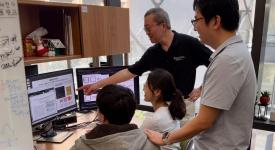
05/28/2025 - A UT Austin-led research team is developing AI-assisted tools to dramatically accelerate and simplify the design of radio frequency integrated circuits (RFICs)—a foundational technology for next-gen communications, radar, and autonomous systems. Supported by a $9.6M award from Natcast, the project includes UT Computer Science professor Adam Klivans and aims to expand access to RFIC design while advancing U.S. leadership in semiconductor innovation.
The Future of AI Research: UT's Adam Klivans on KXAN
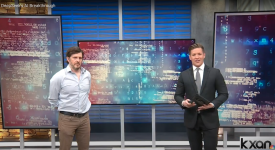
01/31/2025 - Dr. Adam Klivans, UT Computer Science professor and director of the Institute for Foundations of Machine Learning, joined KXAN Austin to discuss the impact of DeepSeek’s latest AI model. He explained how the Chinese company’s breakthrough in training efficiency—achieving high-performance results with significantly less computational power—has surprised the AI industry and affected major tech stocks. Klivans also highlighted ongoing questions about DeepSeek’s methods and the broader implications for AI development.
On AI for the Rest of Us: How AI is Accelerating Discovery

12/03/2024 - From data analysis, code writing, summarizing scientific literature and even designing experiments, researchers across disciplines are using AI tools to aid in their research.Adam Klivans, a professor of computer science and Alex Dimakis, a computer and electrical engineering professor, co-direct the Machine Learning Lab and the Institute for Foundations of Machine Learning. Together with Marc Airhart and Casey Boyle discuss how artificial intelligence plays an increasingly important role in the latest scientific discoveries.
Turbocharging Protein Engineering with AI
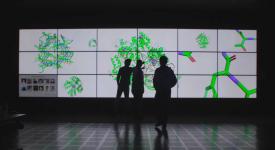
09/26/2024 - Biotech advances from UT’s new Deep Proteins group are changing the game with help from artificial intelligence.Working as a chemist in Houston, Danny Diaz spent a lot of time plodding his way through crosstown traffic, pondering how to speed up his research.“I realized that my impact in the short term would be limited to the amount of chemistry experiments I could do with my hands,” he recalled.
Vista: AI-Focused Supercomputer in Production for Open Science Community
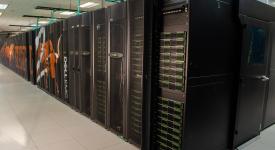
09/04/2024 - NSF-funded system expands TACC’s capacity for AI with Arm-based NVIDIA technology
Artificial Intelligence Trained to Draw Inspiration From Images, Not Copy Them
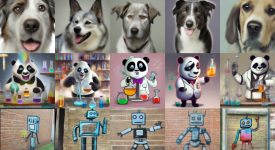
05/17/2024 - Researchers are using corrupted data to help generative AI models avoid the misuse of images under copyright. Powerful new artificial intelligence models sometimes, quite famously, get things wrong — whether hallucinating false information or memorizing others’ work and offering it up as their own. To address the latter, researchers led by a team at The University of Texas at Austin have developed a framework to train AI models on images corrupted beyond recognition.
Adam Klivans Wins CNS Teaching Excellence Award
04/05/2013 - Associate Professor Adam Klivans has won the Teaching Excellence Award in CS from the College of Natural Sciences.
2007 Major Department Awards and Recognition
08/29/2007 - UTCS is pleased to note a number of recent, significant awards and honors. The department is deeply honored by the peer and public recognition of our work.
UTCS faculty, Adam Klivans and Emmett Witchel, receive NSF CAREER (Faculty Early Career Development) Awards.
02/14/2007 - The CAREER Program offers the National Science Foundation's most prestigious awards in support of the early career-development activities of those teacher-scholars who most effectively integrate research and education within the context of the mission of their organization.




